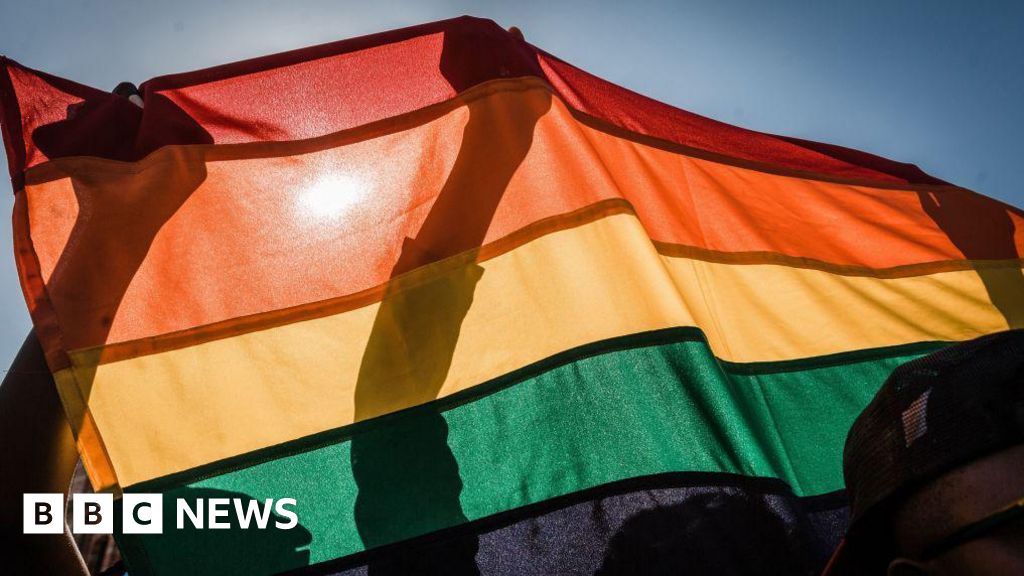On June 21, 2024, the High Court of Namibia overturned colonial-era laws that criminalized same-sex acts between men, delivering a victory for the LGBTQ+ community and human rights advocates in the region.

Also Read: Thailand Becomes the First Southeast Asian Country to Legalize Same-Sex Marriage
The laws in question inherited from South Africa when Namibia gained independence in 1990, criminalized “sodomy” and “unnatural offences.”
These laws were a remnant of the colonial era originally designed to punish and exclude gay men and were primarily enforced against men.
The country’s legal framework upon independence included these colonial laws, which, despite being enforced, continued to stigmatize and discriminate against the LGBTQ+ community.
The High Court comprised of three judges declared that these laws amounted to unfair discrimination under the Namibian constitution.
The court stated that consensual same-sex conduct should not be criminalized and that the enforcement of such laws was based largely on prejudice.
The court’s judgment underlined the principle that private moral views, even if held by the majority, do not justify criminalizing consensual sexual activity between adults.
The judgment is expected to reduce discrimination against LGBTQ+ individuals in the country. By decriminalizing same-sex relations, the court has helped create a safer environment for the LGBTQ+ community.
The United Nations’ HIV/AIDS agency (UNAIDS) highlighted that the law had discrimination in healthcare settings, deterring LGBTQ+ individuals from seeking necessary services.
The ruling is anticipated to improve healthcare access for LGBTQ+ community in the context of HIV testing and treatment.
Friedel Dausab, the activist who brought the case forward expressed happiness.
Organizations such as UNAIDS and Amnesty International welcomed the decision. UNAIDS described it as a victory for equality, while Amnesty noted the fierce backlash against LGBTQ+ rights in the country over the past year and lauded the court for upholding principles of equality.
While Namibia joins countries like Angola and Botswana in decriminalizing same-sex acts, other nations have moved in the opposite direction.
Uganda enacted severe anti-LGBTQ+ legislation including the death penalty for “aggravated homosexuality.”
Also Read: Louisiana Mandates Ten Commandments to be Displayed in Classrooms
Ghana also passed a bill imposing harsh penalties for promoting LGBTQ+ rights, although it has yet to be signed into law.
Of the 64 countries globally that criminalize same-sex relations, 31 are in Africa. The decision represents a shift in a continent where legal and cultural opposition to LGBTQ+ rights remains strong.
The ruling targeted colonial-era laws that criminalized “sodomy” and “unnatural sexual offences,” which, although rarely enforced, perpetuated discrimination and fear among gay men.
No laws criminalized same-sex activities between women in the country. While same-sex marriage remains illegal in Namibia, unions performed abroad are recognized if one partner is a Namibian citizen.
Activists and supporters celebrated the court’s decision with many expressing feelings of liberation and newfound acceptance in their own country.
The ruling was praised by various human rights organizations including the United Nations, which highlighted the decision as a powerful step towards a more inclusive society.
Organizations like Amnesty International urged the Namibian government to ensure the safety and dignity of LGBTQ individuals in the country.
The laws in question were relics from Namibia’s colonial past under German and later South African rule, intended to marginalize and punish gay men.
The legal challenge was initiated by Friedel Dausab, a Namibian activist with support from the British charity Human Dignity Trust.
A three-judge bench at the High Court in Windhoek unanimously ruled that these laws constituted unfair discrimination and should be removed.
Several nations have repealed anti-LGBTQ laws, although 31 countries still criminalize same-sex sexual activities. South Africa remains the only African country where same-sex couples can marry and adopt.
A pan-African survey indicated that Namibia ranks relatively high in tolerance towards LGBTQ+ individuals with 64% of respondents expressing positive or neutral attitudes towards having gay neighbors.
Also Read: Philippines Demands Return of Seized Equipment and Compensation from China






















